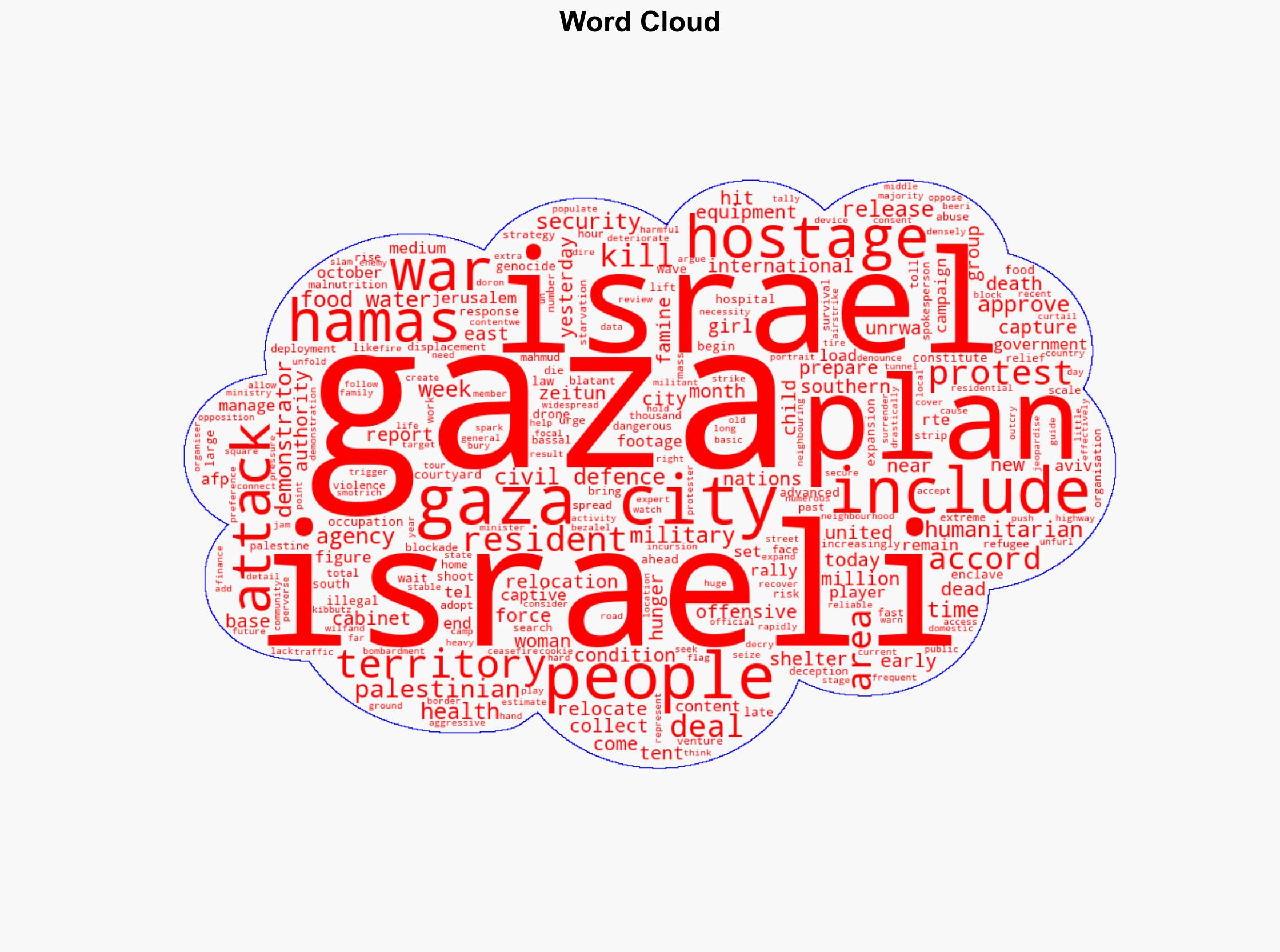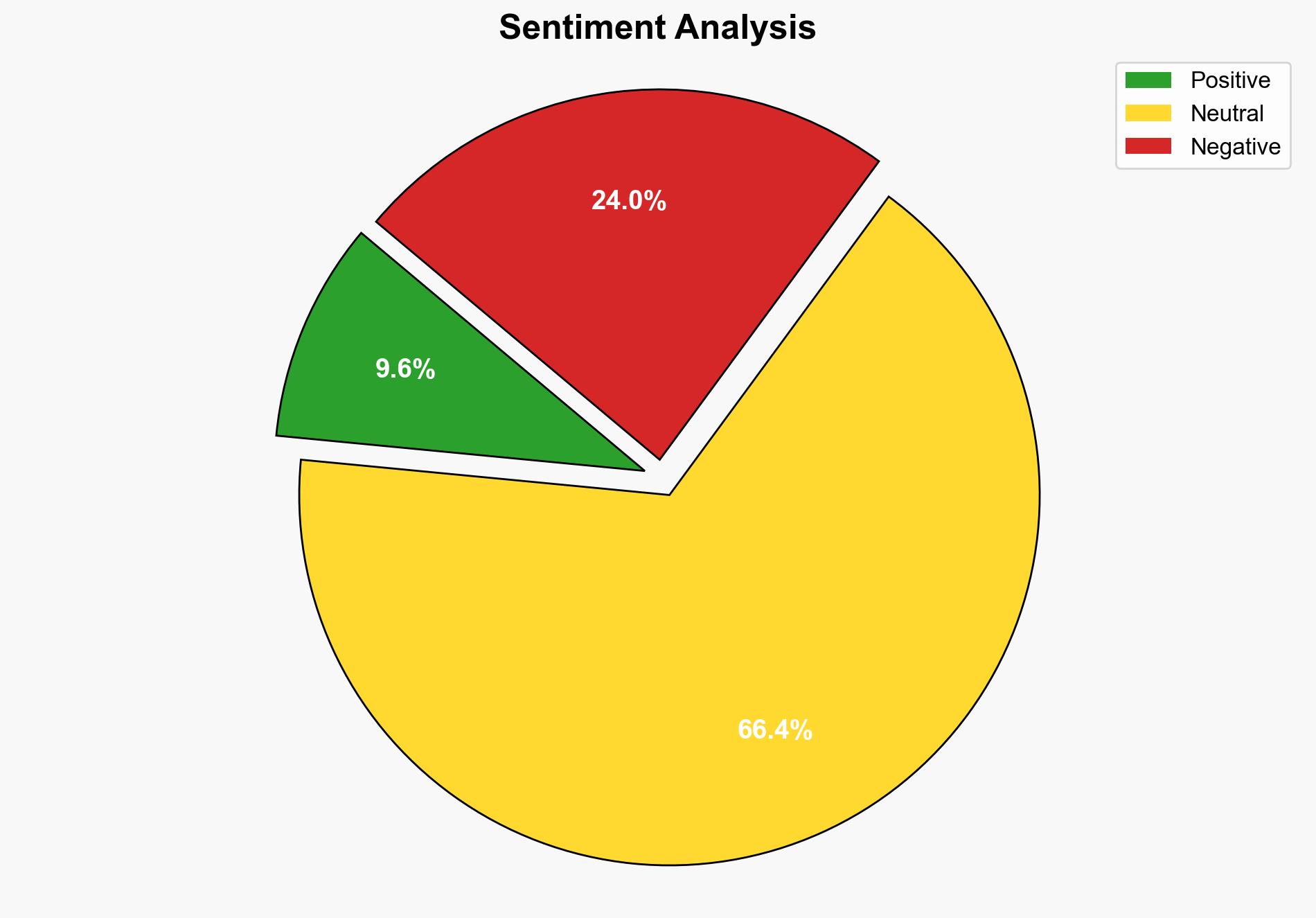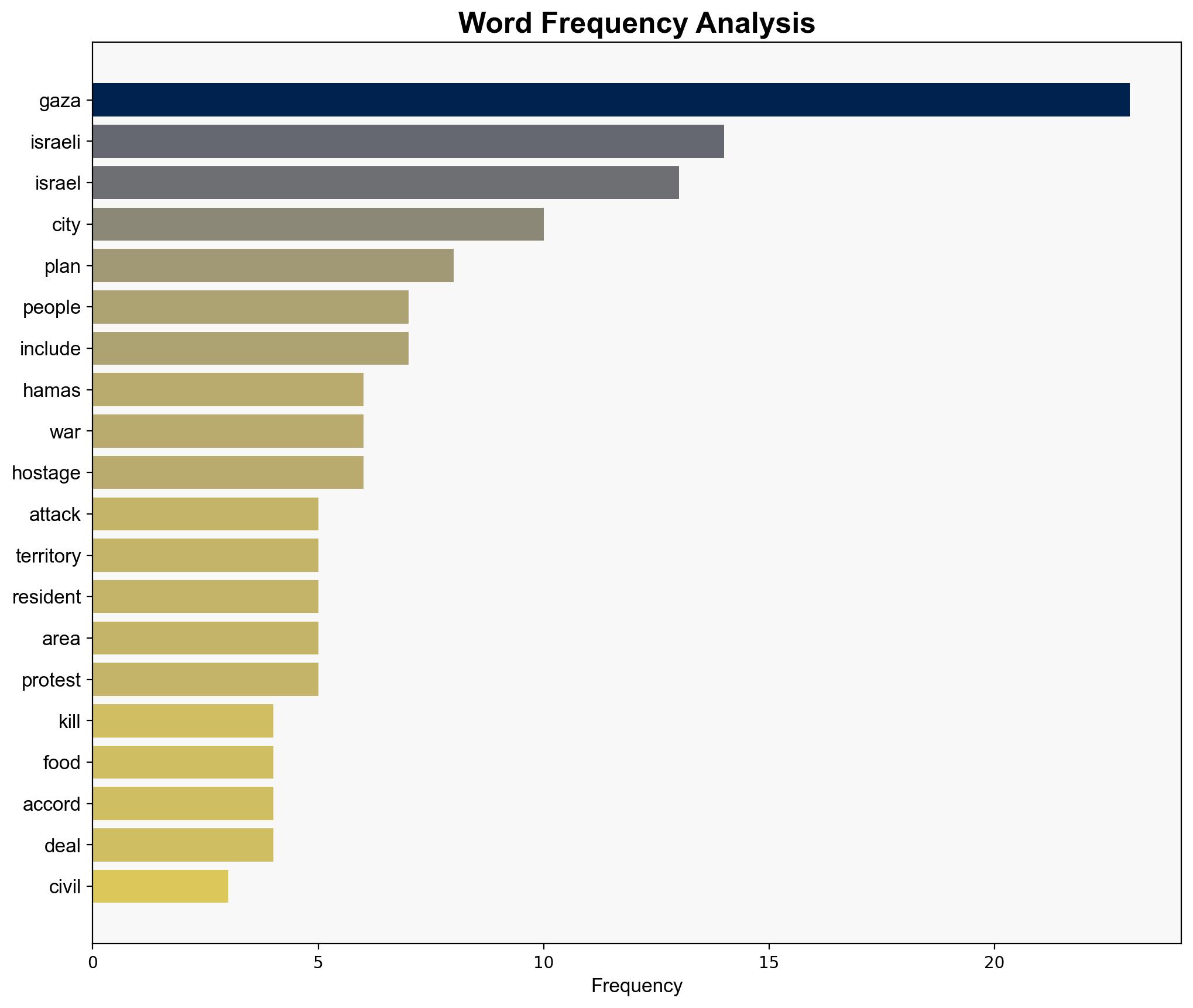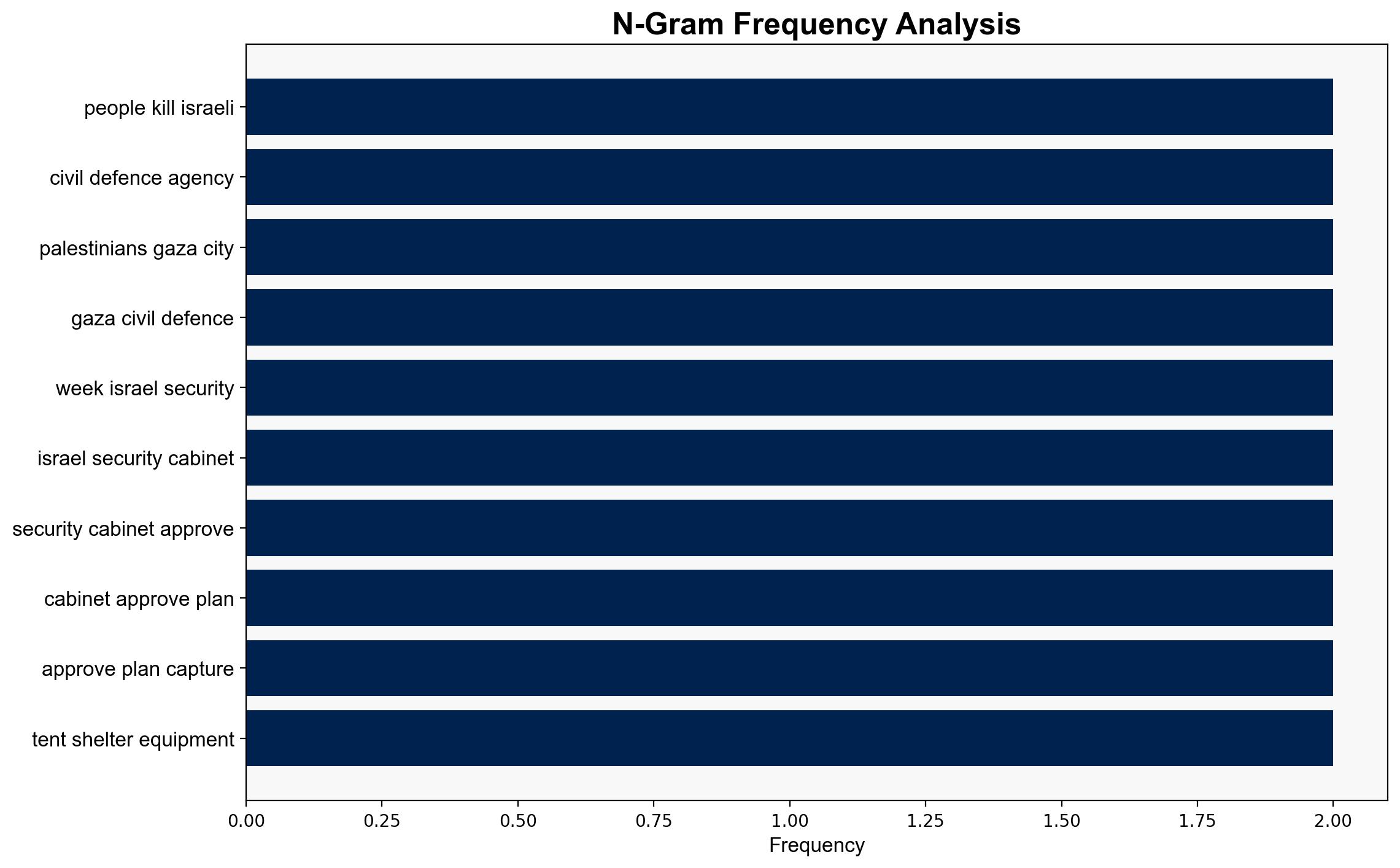Israel attacks Gaza hospital advances displacement plans – RTE
Published on: 2025-08-16
Intelligence Report: Israel attacks Gaza hospital advances displacement plans – RTE
1. BLUF (Bottom Line Up Front)
The strategic judgment indicates a high likelihood that Israel’s actions in Gaza, including the attack on a hospital and displacement plans, are part of a broader military strategy to exert control over the region. The most supported hypothesis is that these actions are intended to weaken Hamas and secure Israeli borders. The recommended action is to engage in diplomatic efforts to de-escalate tensions and address humanitarian concerns. Confidence level: Moderate.
2. Competing Hypotheses
1. **Hypothesis A**: Israel’s actions, including the hospital attack and displacement plans, are primarily aimed at weakening Hamas’ operational capabilities and securing Israeli territory.
2. **Hypothesis B**: The actions are part of a broader strategy to annex parts of Gaza, using military force to displace Palestinians and expand Israeli territory.
Using the Analysis of Competing Hypotheses (ACH) 2.0, Hypothesis A is better supported by the evidence, which includes Israel’s historical military strategies and statements from Israeli officials about security concerns. Hypothesis B, while plausible, lacks direct evidence of annexation intentions.
3. Key Assumptions and Red Flags
– Assumption for Hypothesis A: Israel’s primary motive is security, not territorial expansion.
– Assumption for Hypothesis B: Israel is willing to face international backlash for territorial gains.
– Red Flags: The lack of clear evidence differentiating between security and territorial motives. Potential cognitive bias includes confirmation bias towards historical patterns of Israeli military actions.
– Inconsistent Data: Reports of humanitarian conditions may be exaggerated or underreported, affecting the perception of the situation.
4. Implications and Strategic Risks
– **Geopolitical Risks**: Escalation could lead to broader regional conflict, drawing in neighboring countries and affecting global diplomatic relations.
– **Humanitarian Risks**: Continued military actions could exacerbate the humanitarian crisis, leading to international condemnation and potential sanctions.
– **Psychological Impact**: Prolonged conflict may increase radicalization and recruitment for extremist groups.
5. Recommendations and Outlook
- Engage in multilateral diplomatic efforts to broker a ceasefire and address humanitarian needs.
- Monitor regional actors for signs of escalation or intervention.
- Scenario Projections:
- Best Case: Successful diplomatic intervention leads to a ceasefire and humanitarian relief.
- Worst Case: Escalation into a broader regional conflict with significant civilian casualties.
- Most Likely: Continued low-intensity conflict with intermittent diplomatic efforts.
6. Key Individuals and Entities
– Mahmud Bassal (Gaza Civil Defence Spokesperson)
– United Nations Relief and Works Agency for Palestine Refugees in the Near East (UNRWA)
7. Thematic Tags
national security threats, humanitarian crisis, regional conflict, geopolitical strategy





